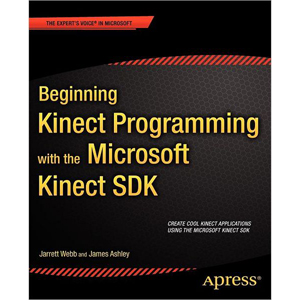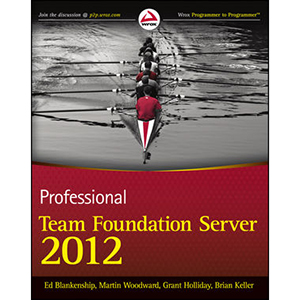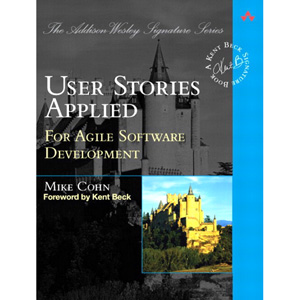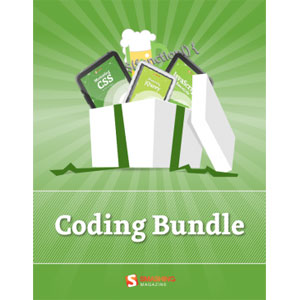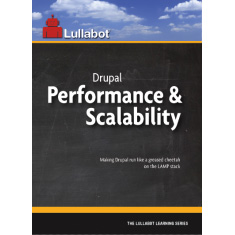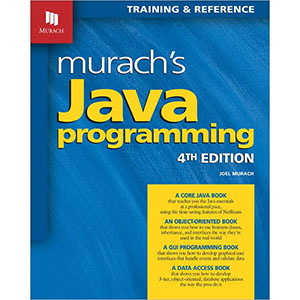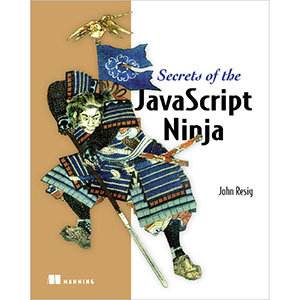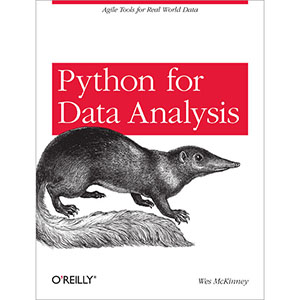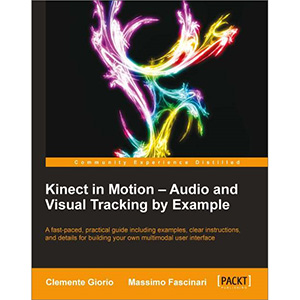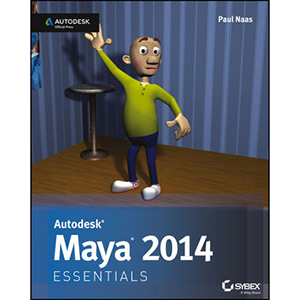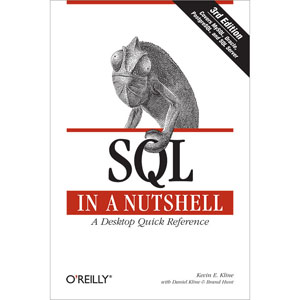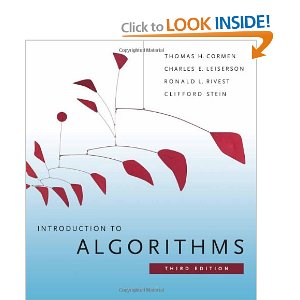Murach’s Visual Basic 2012, 5th Edition
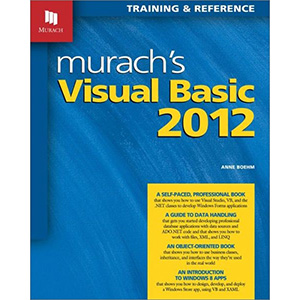
Ever since we published the first edition of our Visual Basic .NET book back in 2002, we’ve been getting comments like these:
“Your Visual Basic book is so good, I opened it and did the whole application from scratch (even though I’d never tried VB before).”
“I can’t praise this book highly enough. The clarity Anne uses in picking what to include, when to introduce it, and how to do so is remarkable.”
“Had I bought your VB book first, I would have saved myself lots of dollars and several months’ time.”
Now, Anne Boehm continues this tradition of quality and usefulness in the latest edition of our VB text, written for Visual Basic 2012.
Of course, the content continues to evolve with the language. So in this edition, Anne has added a chapter on Windows 8 programming that gets you started creating touchscreen applications for tablets. And she’s updated the material wherever VB 2012 differs from earlier releases.
But she hasn’t changed the overall approach. So whether you’re new to VB development…or you’re upgrading to VB 2012 and need an up-to-date reference…you’ll find that this book is packed with the information you need, delivered in a way that’s made earlier editions such favorites among professional developers:
- It’s concise, practical, and crystal-clear in telling you what you need to know.
- It shows you how to get the most from Visual Studio 2012 as you design, code, debug, and deploy Windows Forms applications using VB 2012.
- It gives you solid training in the essential skills that you’ll use every day, including data validation…handling numeric, date, and string data…working with arrays and collections…handling exceptions…working with text, binary, and XML files…and understanding how OOP works.
- It gives you a 4-chapter section on database programming…far more than you’ll find in any other VB book, even though database handling is essential in business applications.
- It introduces you to LINQ, the .NET feature that lets you use VB to query almost any data source, from databases to arrays to XML files.
- It shows you how to build real-world applications so you always see how the features you’re learning interact with each other.
- It gives you chapter exercises that let you practice what you’re learning and apply your skills in new ways.
In short, if you’re going to be working with Visual Basic 2012, take the advice of your fellow developers: Save yourself some time and money by making this book your first choice for VB 2012 education and reference.
Who this book is for
This book is for anyone who wants to learn how to use VB 2012 to develop Windows Forms applications:
- If you’ve never used VB before, you’ll start at the beginning but move at a pace that has you developing business applications in a minimum of time.
- If you’re new to the .NET environment, you’ll learn how to use Visual Studio 2012 and all of the great productivity tools it has to offer as you learn Visual Basic.
- If you have experience with a previous version of Visual Basic, you’ll upgrade easily to VB 2012, focusing on the features and development techniques that are new to you.
And even though the focus is on Windows Forms, the skills you’ll gain will apply to any .NET application…whether for Windows, the web, or mobile devices.
Table of Contents
Section 1: Introduction to Visual Basic programming
Chapter 1. An introduction to Visual Studio
Chapter 2. How to design a Windows Forms application
Chapter 3. How to code and test a Windows Forms application
Section 2: The Visual Basic language essentials
Chapter 4. How to work with numeric and string data
Chapter 5. How to code control structures
Chapter 6. How to code procedures and event handlers
Chapter 7. How to handle exceptions and validate data
Chapter 8. How to work with arrays and collections
Chapter 9. How to work with dates and strings
Chapter 10. More skills for working with Windows forms and controls
Chapter 11. How to create and use classes
Chapter 12. How to debug an application
Section 3: Database programming
Chapter 13. An introduction to database programming
Chapter 14. How to work with data sources and datasets
Chapter 15. How to work with bound controls and parameterized queries
Chapter 16. How to use ADO.NET to write your own data access code
Section 4: Object-oriented programming
Chapter 17. How to work with default properties, events, and operators
Chapter 18. How to work with inheritance
Chapter 19. How to work with interfaces and generics
Chapter 20. How to organize and document your classes
Section 5: More skills for working with data
Chapter 21. How to work with files and data streams
Chapter 22. How to work with XML files
Chapter 23. How to use LINQ
Section 6: Enhancement, deployment, and Windows 8
Chapter 24. How to enhance the user interface
Chapter 25. How to deploy an application
Chapter 26. An introduction to Windows 8 programming
Resources:
Appendix A. How to install and use the software and files for this book
Book Details
- Paperback: 842 pages
- Publisher: Mike Murach & Associates; 5th Edition (November 2013)
- Language: English
- ISBN-10: 1890774731
- ISBN-13: 978-1890774738
